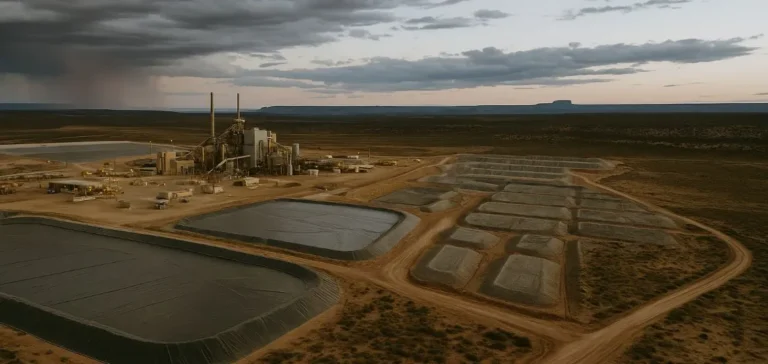Energy Fuels Inc., a major American player specialising in uranium and rare earth elements production, continues to report production results exceeding initial forecasts at its Pinyon Plain mine, located in Arizona. In June 2025 alone, the company extracted 230,661 pounds of uranium oxide (U3O8), bringing the total for the second quarter of 2025 to 638,700 pounds. According to figures published by Energy Fuels, this performance is mainly explained by the high uranium grades extracted, averaging 3.51% U3O8 in June and 2.23% for the quarter.
Increased uranium sales expected
During the second quarter, Energy Fuels sold 50,000 pounds of uranium on the spot market at an average price of $77.00 per pound. Strengthened by high yields at Pinyon Plain and at its White Mesa Mill processing facility, the only conventional uranium production plant currently operational in the United States, the company plans to significantly increase its sales in the coming months. Thus, 140,000 pounds of uranium are expected to be sold in the third quarter, followed by 160,000 pounds in the fourth quarter under existing long-term contracts with utility companies.
Increased sales outlook for 2026
Energy Fuels’ sales forecasts for 2026 range from 620,000 to 880,000 pounds of U3O8, continuing under its already signed long-term contracts. The company also indicated its intention to pursue opportunistic sales on spot markets and explore possibilities for entering into new long-term contracts to sell additional volumes generated by increased production.
An exceptional deposit according to CEO
Mark S. Chalmers, President and Chief Executive Officer of Energy Fuels, described the Pinyon Plain mine as an “exceptional uranium deposit”. He stated: “In nearly 50 years of activity in the uranium sector, I have never seen another American mine comparable to Pinyon Plain.” According to him, the mine represents the richest uranium deposit mined in the United States over the past 30 years. He added that the company is currently mining only about 25% of the potentially accessible mineralised zone, leaving significant room for additional exploration.






















